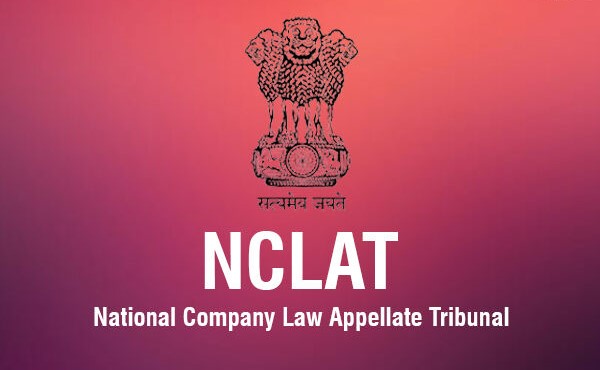
Introduction:
Introduction:
The National Company Law Appellate Tribunal (NCLAT) in Delhi, in the case of Vishram Narayan Panchpor, Resolution Professional (RP) of Blue Frog Media Pvt. Ltd. vs Committee of Creditors (CoC) of Blue Frog Media Pvt. Ltd. & Anr, presided over by Justice Ashok Bhushan, Chairperson along with Technical Members Mr. Barun Mitra and Mr. Arun Baroka, recently delivered a crucial verdict.
This ruling asserts the eligibility of an ex-promoter/director to submit a Resolution Plan under Section 29A of the Insolvency and Bankruptcy Code, 2016 (IBC), even if they resigned before the initiation of the Corporate Insolvency Resolution Process (CIRP).
This significant NCLAT judgement establishes a precedent regarding the participation of individuals who resigned before the initiation of the Corporate Insolvency Resolution Process (CIRP).
Background:
On May 19, 2021, the National Company Law Tribunal (NCLT) in Mumbai accepted the Corporate Insolvency Resolution Process (CIRP) application filed by Blue Frog Media Pvt. Ltd. (the Corporate Debtor) under Section 10 of the Insolvency and Bankruptcy Code (IBC). Mr. Mahesh Mathai, identified as ‘Respondent 2’ and the former Director of the Corporate Debtor, presented a Resolution Plan. Subsequently, on November 8, 2021, the Committee of Creditors (CoC) approved the Resolution Plan with an overwhelming vote share of 91.86%.
The current appeal challenges the NCLT Mumbai’s Order dated August 18, 2023, which declined approval of Respondent 2’s Resolution Plan. The rejection was grounded on the assertion that he is ineligible to submit a Resolution Plan under Section 29A of the IBC.
NCLAT’s Interpretation of Section 29A:
The Appellate Tribunal, in its analysis, emphasized the straightforward language of Section 29A, which outlines the conditions rendering a person ineligible to submit a Resolution Plan. Notably, clauses (a) to (g) enumerate various disqualifications. Of particular relevance, Section 29A(c) comes into play when, at the time of submitting the plan, the person or those acting in concert with them have an account with the Corporate Debtor classified as Non-Performing Assets (NPAs).
Absence of NPA Status: Crucial Determinant
The NCLAT scrutinized the particulars of the case, noting that, based on the provided Form-H, all creditors were individual entities, with no banks in the mix. Importantly, the Tribunal found no substantive evidence indicating that Respondent 2 or the Corporate Debtor was categorized as an NPA at the time of submitting the Resolution Plan. Consequently, the NCLAT concluded that Section 29A was not applicable in this instance.
Supreme Court Precedent: Hari Babu Thota vs. Shree Aashraya Infra-Con Ltd.- 2023 SCC OnLine SC 1642
The Appellate Tribunal invoked a precedent set by the Supreme Court in the case of Hari Babu Thota vs. Shree Aashraya Infra-Con Ltd. The Supreme Court, in that instance, held that the mere disqualification under Section 29A should not be a ground for rejecting a Resolution Plan submitted by a promoter, especially when the Committee of Creditors (CoC) has approved it. The NCLAT drew parallels, asserting that Section 29A does not render promoters and directors ineligible to submit a Resolution Plan unless they fall within the specified disqualifying clauses (a) to (g). This nuanced interpretation provides clarity on the eligibility criteria, emphasizing the need for a substantive disqualification under the mentioned clauses.
Promoters and Directors Eligibility Clarification under Section 29A:
Addressing misconceptions surrounding Section 29A’s impact on promoters and directors, the Tribunal clarified that the section does not automatically disqualify them from submitting a Resolution Plan unless they fall under clauses (a) to (g). The NCLAT underscored that Respondent 2’s ineligibility stemmed solely from his past role as a promoter until his resignation in 2018.
Conclusion:
The NCLAT set aside the NCLT Mumbai’s Order directing the disposal of the application and recognizing the CoC’s approval of the Resolution Plan. This landmark decision establishes a precedent affirming the eligibility of ex-promoters/directors to participate in the resolution process even after resigning before the CIRP commencement.
In essence, the NCLAT’s comprehensive examination of Section 29A and its nuanced interpretation ensure a fair and inclusive resolution process, paving the way for future cases involving the eligibility of ex-promoters and directors in the insolvency framework.
To Read on the Hon’ble Supreme Court’s ruling that modification of arbitral awards under Sections 34 & 37 of the Arbitration & Conciliation Act is not permissible. Please click here.
